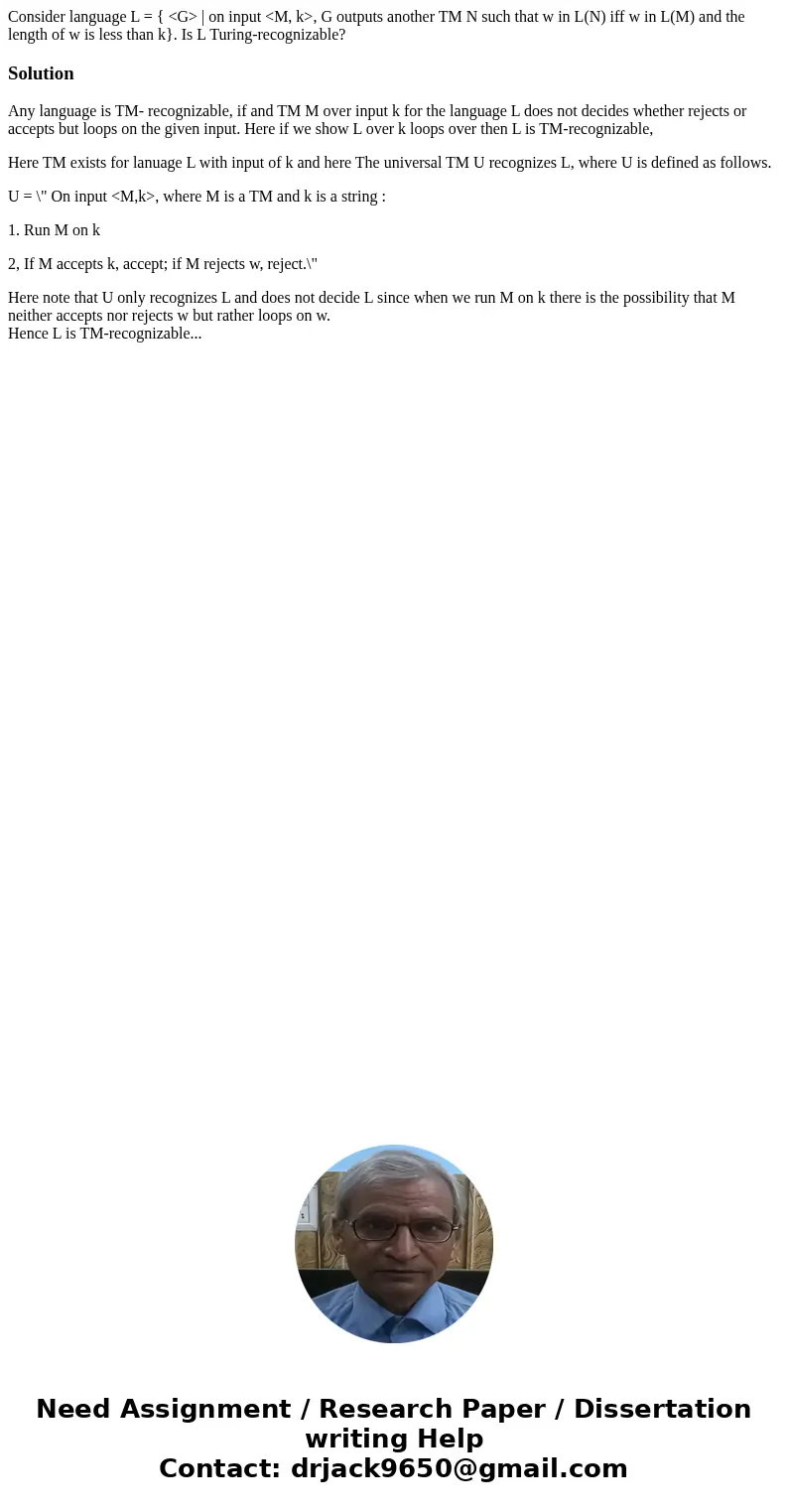Consider language L on input G outputs another TM N such
Consider language L = { <G> | on input <M, k>, G outputs another TM N such that w in L(N) iff w in L(M) and the length of w is less than k}. Is L Turing-recognizable?
Solution
Any language is TM- recognizable, if and TM M over input k for the language L does not decides whether rejects or accepts but loops on the given input. Here if we show L over k loops over then L is TM-recognizable,
Here TM exists for lanuage L with input of k and here The universal TM U recognizes L, where U is defined as follows.
U = \" On input <M,k>, where M is a TM and k is a string :
1. Run M on k
2, If M accepts k, accept; if M rejects w, reject.\"
Here note that U only recognizes L and does not decide L since when we run M on k there is the possibility that M neither accepts nor rejects w but rather loops on w.
Hence L is TM-recognizable...

 Homework Sourse
Homework Sourse